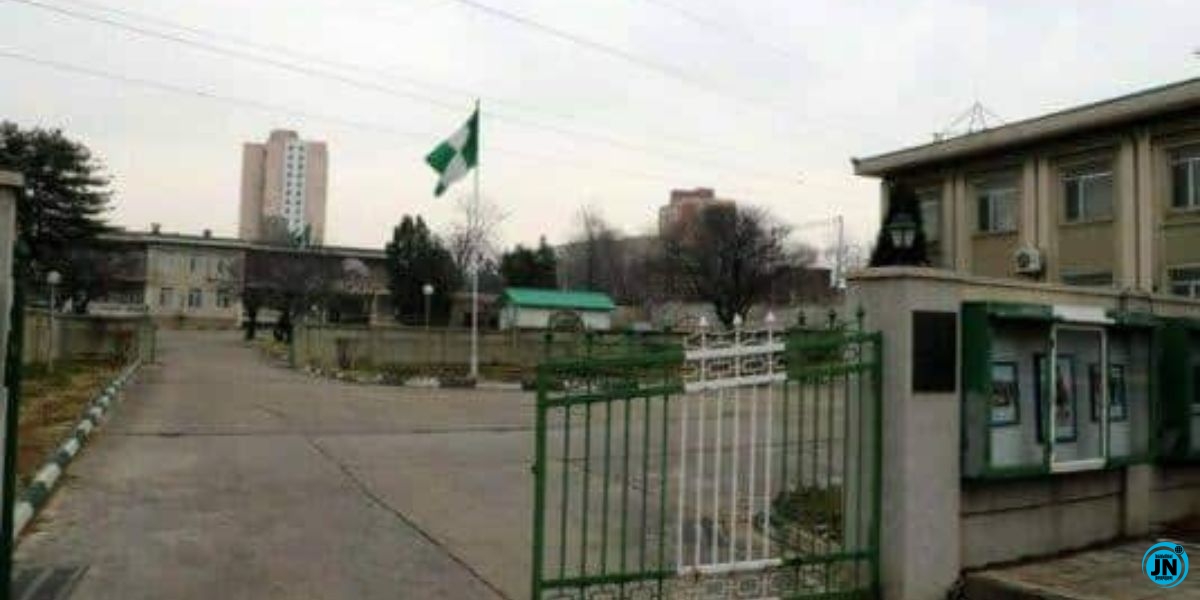
Nigeria is set to reopen its embassy in Pyongyang, North Korea, marking the resumption of diplomatic relations that were disrupted by the COVID-19 pandemic. The embassy had been shut down in early 2021 when North Korea implemented strict pandemic measures, which included closing its borders and limiting the presence of foreign diplomatic missions.
The development was announced by Patrick Imologhome, Nigeria’s Charge d’Affaires to North Korea, on December 11 during a meeting with Aleksandr Matsegora, Russia’s Ambassador to North Korea. The meeting, which took place in Pyongyang, served as a platform to discuss bilateral relations, regional developments, and Nigeria’s diplomatic plans in the Democratic People’s Republic of Korea (DPRK).
A statement released by the Russian Embassy highlighted the details of the discussion, emphasizing the mutual interests shared by the two diplomats. According to the statement, Imologhome and Matsegora held a “thorough exchange of views” on various issues, including the importance of restoring Nigeria’s diplomatic presence in Pyongyang.
The Russian ambassador expressed his optimism and support for Nigeria’s plans, noting the significance of Nigeria’s re-engagement in the region. “Matsegora conveyed sincere wishes for the successful implementation of plans to restore the Nigerian diplomatic mission,” the statement read. He further pledged to assist Nigeria in ensuring the embassy’s operations are productive and effective.
“He offered full support and assistance for the productive functioning of the diplomatic corps in the DPRK [Democratic People’s Republic of Korea], which, despite its small size, is known for its unity and friendly atmosphere among diplomats,” the statement added. Matsegora’s comments underscored Russia’s commitment to fostering diplomatic ties between Nigeria and North Korea.
The closure of Nigeria’s embassy in 2021 was part of a broader exodus of foreign embassies and international organizations after North Korea imposed one of the world’s strictest border shutdowns at the onset of the pandemic in early 2020. These measures were aimed at containing the spread of the virus but effectively isolated the country diplomatically and economically. However, in August 2023, North Korea began reopening its borders to foreign nationals, paving the way for the return of embassies and diplomatic missions, including Nigeria’s.
Nigeria’s decision to resume embassy operations in Pyongyang has drawn attention, especially given the country’s complex relations with North Korea. In 2022, a United Nations report alleged that Nigeria had explored a $3.5 million arms deal with Haegeumgang Trading Corporation, a North Korean company linked to the Korean People’s Army. The report claimed the deal would have violated sanctions imposed by the United Nations, European Union, and the United States, which prohibit trade in arms and military equipment with North Korea.
While Nigeria did not publicly address the allegations at the time, diplomatic observers believe the reopening of its embassy signals a renewed interest in fostering relations with Pyongyang. Analysts suggest that this move is part of Nigeria’s broader strategy to expand its international partnerships, particularly in regions where diplomatic engagement has been limited.
Reestablishing diplomatic presence in North Korea also positions Nigeria to play a more prominent role in global diplomatic discussions concerning the Korean Peninsula. Given the ongoing geopolitical scrutiny surrounding North Korea’s nuclear ambitions and international sanctions, Nigeria’s actions are likely to attract significant international attention.
Observers have noted that the reopening of the embassy aligns with Nigeria’s recent push to strengthen its global diplomatic presence and leverage its position as a key player in international affairs. The move may also open opportunities for economic and cultural exchange, as well as potential collaborations in sectors such as education, technology, and trade.
As Nigeria prepares to relaunch its diplomatic mission in Pyongyang, stakeholders will be watching closely to assess the impact of this renewed engagement on Nigeria-North Korea relations and its broader implications for global diplomacy.

